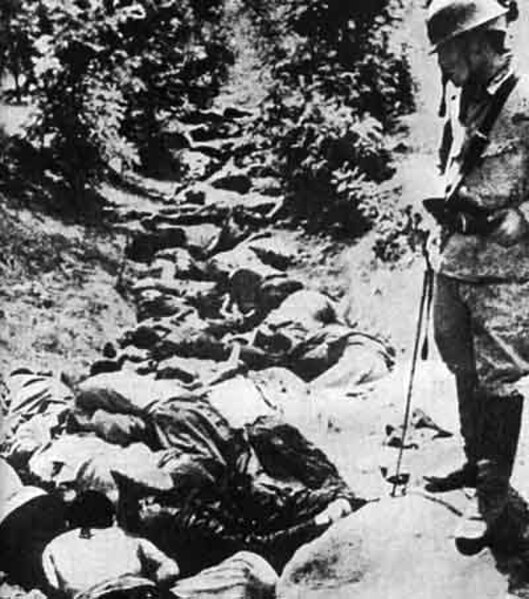Iwane Matsui was a general in the Imperial Japanese Army and the commander of the expeditionary force sent to China in 1937. He was convicted of war crimes and executed by the Allies for his involvement in the Nanjing Massacre.
Matsui inspecting the front lines in Shanghai in September 1937
Matsui riding into Nanjing on December 17, 1937
Iwane Matsui, c1930s
Matsui listening to the proceedings of the IMTFE
A war crime is a violation of the laws of war that gives rise to individual criminal responsibility for actions by combatants in action, such as intentionally killing civilians or intentionally killing prisoners of war, torture, taking hostages, unnecessarily destroying civilian property, deception by perfidy, wartime sexual violence, pillaging, and for any individual that is part of the command structure who orders any attempt to committing mass killings including genocide or ethnic cleansing, the granting of no quarter despite surrender, the conscription of children in the military and flouting the legal distinctions of proportionality and military necessity.
A U.S. soldier observing victims of the Malmedy massacre (17 December 1944), where 84 U.S. prisoners of war were murdered by the Waffen-SS in Belgium
A ditch full of the bodies of Chinese civilians killed by Japanese soldiers in Suzhou, China, 1938
HRW wrote that the Saudi Arabian-led military intervention in Yemen that began on March 26, 2015, involved airstrikes in apparent violation of the laws of war.
Bodies of some of the hundreds of Vietnamese villagers who were killed by U.S. soldiers during the My Lai Massacre








